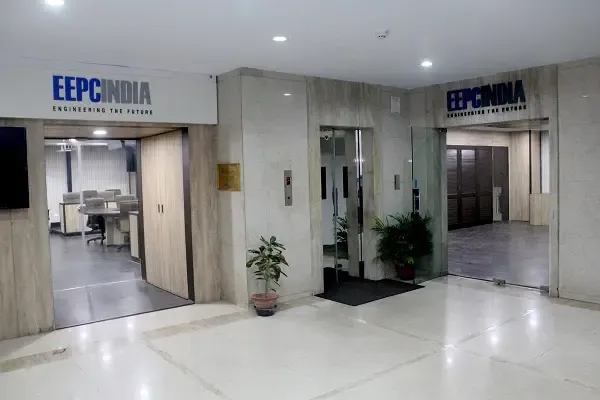How Are Reforms Easing Compliance for Small Exporters?

Synopsis
Key Takeaways
- Relaxation of MTT rules to boost small exporters.
- Extension of foreign exchange timeframe from 4 to 6 months.
- Simplified closure process for EDPMS and IDPMS.
- Compliance burden significantly reduced for MSMEs.
- Enhanced procedural flexibility for merchant traders.
New Delhi, Oct 3 (NationPress) The Engineering Export Promotion Council of India (EEPC India) expressed its approval on Friday regarding the relaxed Merchanting Trade Transaction (MTT) rules, stating that these changes are set to enhance the ease of doing business notably for small exporters and retailers.
The Reserve Bank of India (RBI) has modified the MTT regulations by extending the timeframe for foreign exchange outlay from four months to six months, effective from October 1, 2025.
Additionally, the central bank has streamlined the process for closing entries in both the Export Data Processing and Monitoring System (EDPMS) and Import Data Processing and Monitoring System (IDPMS) for transactions not exceeding Rs 10 lakh per bill.
EEPC India remarked that this decision will significantly alleviate compliance challenges for small exporters and grant more flexibility to merchant traders.
According to EEPC Chairman Pankaj Chadha, "The reforms initiated by the RBI were long-awaited requests from EEPC India. This initiative is poised to lessen the compliance demands on MSME exporters and provide procedural adaptability for traders."
Under the revised regulations, entries (including outstanding entries) in the EDPMS and IDPMS valued at up to Rs 10 lakh can be reconciled and finalized based on a declaration from the exporter indicating that the amount has been received or from the importer indicating that the amount has been paid.
Any decrease in the declared or invoice value of shipping bills or bills of entry will also be recognized based on the declaration from the respective exporter or importer.
The RBI has undertaken various additional measures recently to stimulate trade, including endorsing the Indian rupee (INR) for cross-border trade settlements and establishing a reference rate for the rupee against the currencies of key trading partners.
Chadha emphasized that all these initiatives would significantly accelerate trade and investment, while also gradually promoting the Indian rupee on a global scale.
--IAN
aar/vd









